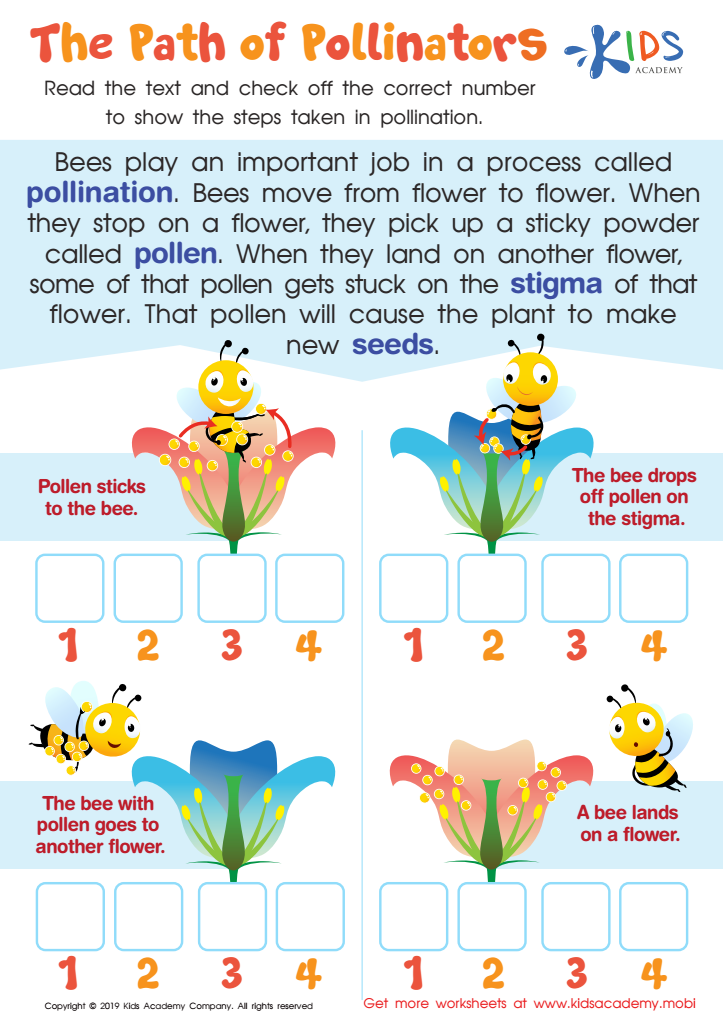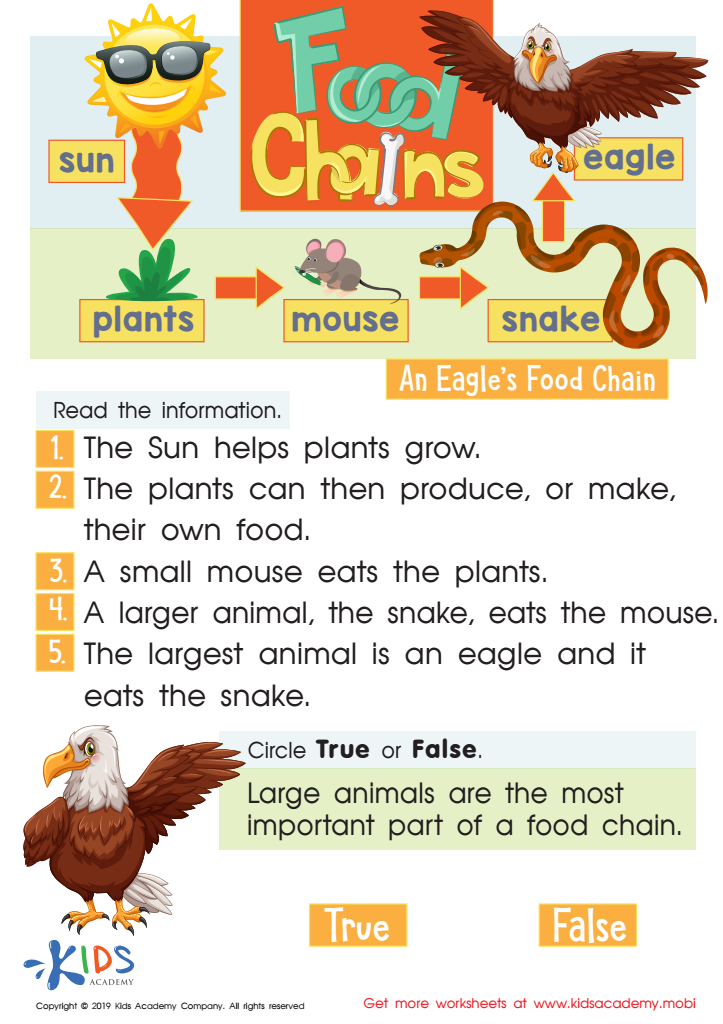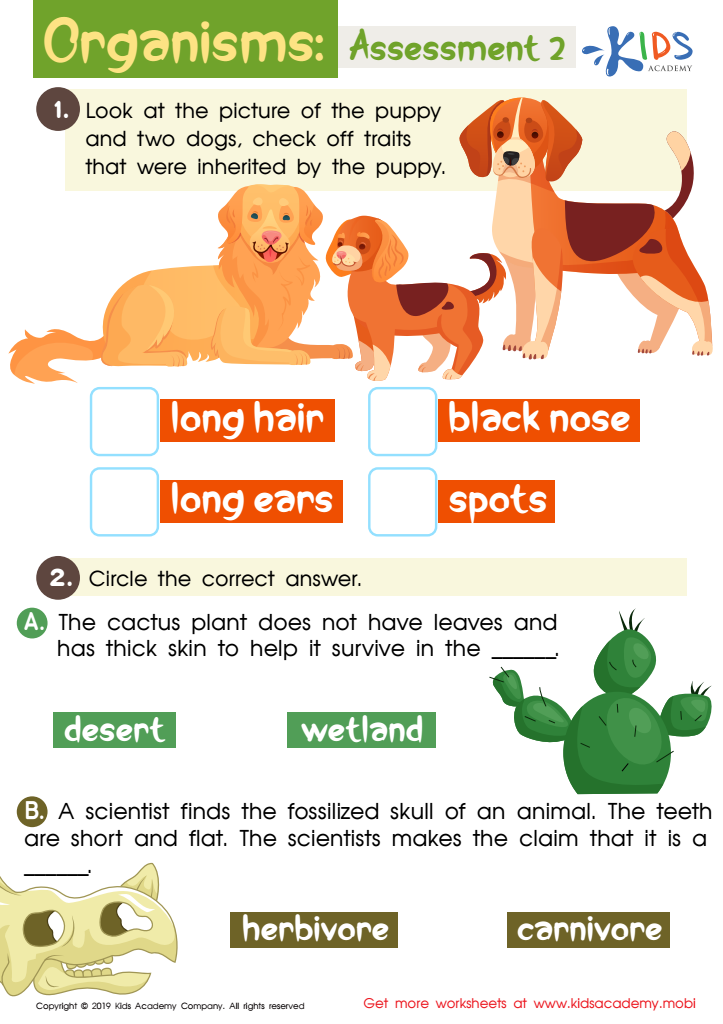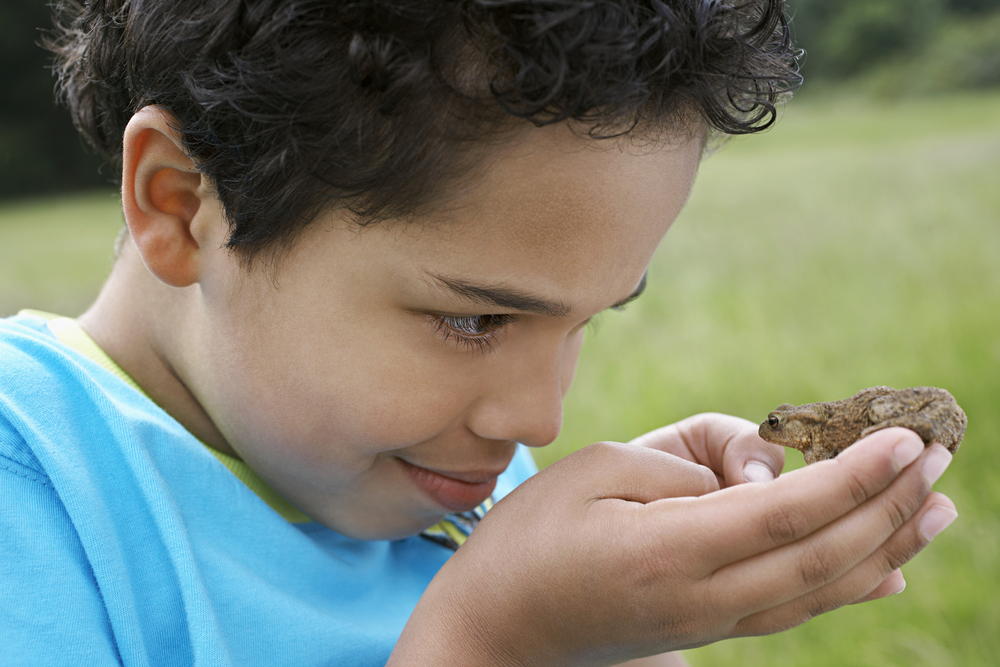Learning about ecosystems Animals Worksheets for Ages 5-9
4 filtered results
-
From - To
Explore the fascinating world of ecosystems with our engaging "Learning about Ecosystems Animals Worksheets," designed for kids ages 5-9. These worksheets offer interactive learning experiences, featuring vibrant illustrations and age-appropriate activities that introduce young learners to different animal habitats and the importance of biodiversity. Perfect for home or classroom use, our worksheets encourage critical thinking and creativity while helping children understand how animals interact with their environment. With a variety of exercises, including puzzles, drawing tasks, and fun facts, these resources make learning about ecosystems an exciting adventure. Start nurturing your child’s curiosity about nature today!


Pollinator Positions Worksheet


The Path of Pollinators Worksheet


Food Chains Worksheet


Organisms: Assessment 2 Worksheet
Teaching children about ecosystems and animals is crucial for their development and understanding of the world around them. For ages 5-9, this kind of knowledge fosters critical thinking and curiosity, laying the foundation for environmental stewardship. When children learn about how animals and plants interact within various ecosystems, they begin to appreciate the delicate balance of nature. Understanding these relationships cultivates empathy towards living beings, encouraging compassionate attitudes as children recognize the importance of every creature, no matter how small.
Additionally, lessons about ecosystems can enhance children's observational skills and scientific curiosity. Through hands-on activities, such as nature walks and classroom experiments, children engage in active learning, helping to develop problem-solving abilities and a love for exploration. This age group is also becoming increasingly aware of environmental issues, making it crucial for educators and parents to equip them with knowledge and agency.
Moreover, integrating ecosystems and animals into learning encourages literacy and communication skills, as children discuss and share their thoughts and findings. Ultimately, engaging with these topics not only enriches their educational experience but also empowers them to become informed citizens who value and protect the planet they inhabit.
 Assign to My Students
Assign to My Students

















